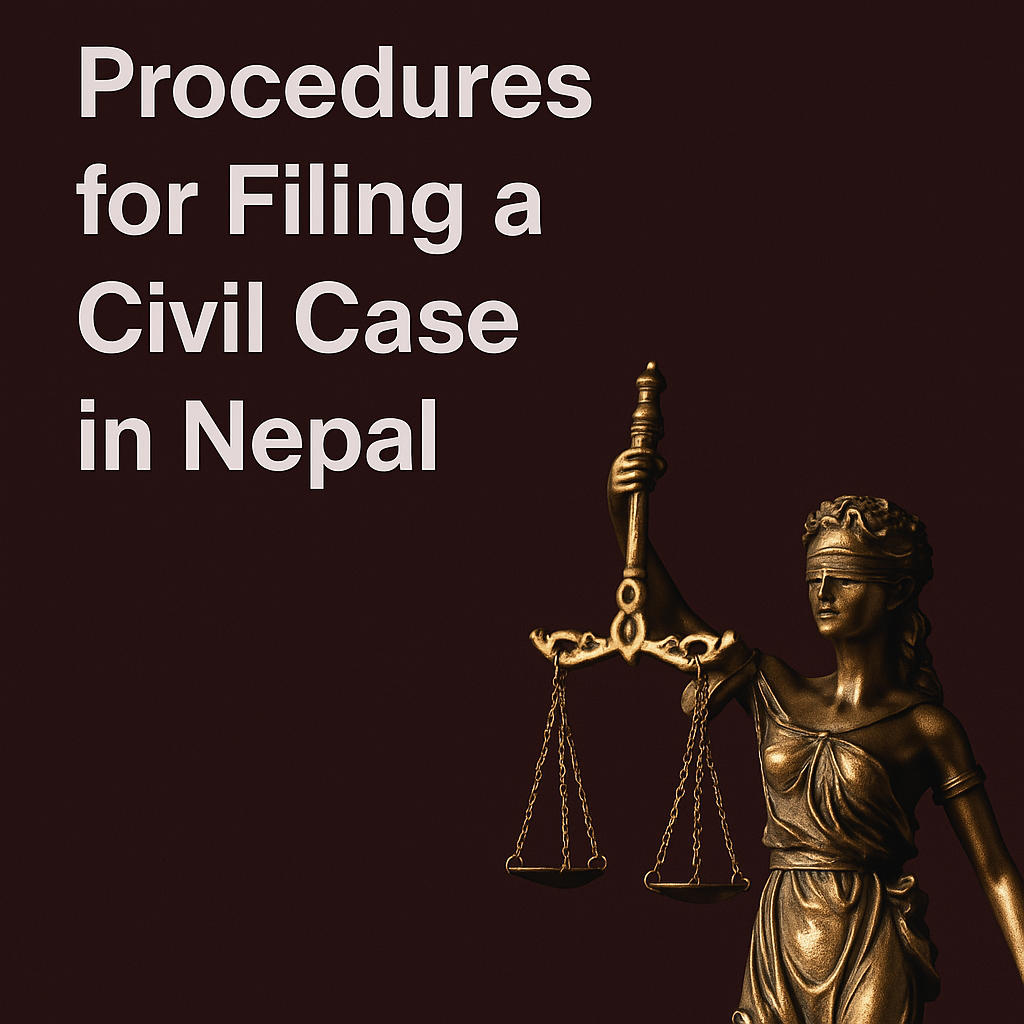Filing a civil case in Nepal is a legal process where a person approaches the court to seek justice for a personal, property, or contractual dispute. The steps are clearly mentioned in the Civil Procedure Code, 2074 (2017).
First, the person who wants to file the case is called the plaintiff. They must prepare a plaint (written complaint) explaining the problem, what happened, and what they want the court to do. This document should include the names and addresses of both parties, the facts of the case, and any legal reason why they believe they deserve justice.
Next, the plaintiff must file the complaint at the appropriate District Court. The court must have jurisdiction over the case based on the type of dispute and the place where the dispute happened. For example, land disputes should be filed where the land is located.
After the case is filed, the court checks whether all the required documents and details are included. If everything is in order, the court registers the case and issues a summons notice to the other party, called the defendant.

The defendant then has to appear in court and submit their written reply, which may include their side of the story and any documents or evidence they have. The court may then suggest mediation, where both parties are encouraged to settle the matter peacefully without a long court battle. Many civil cases are resolved this way.
If mediation fails, the court begins a formal hearing. Both sides get a chance to present their evidence and bring witnesses. The lawyers or the parties themselves explain their points before the judge.
After reviewing all the evidence and arguments, the judge gives a verdict (judgment). This could include compensation, return of property, cancellation of a contract, or any other appropriate legal remedy.
Once the judgment is made, the winning party can ask the court to enforce the decision. If the losing party doesn’t follow the court’s order, further legal steps can be taken to ensure the judgment is obeyed.
Throughout the process, both parties have the right to appeal to a higher court if they believe the decision was unfair. Appeals must be filed within a certain time limit, usually within 35 days.
In short, filing a civil case in Nepal starts with a written complaint, moves through hearings and possible mediation, and ends with a court decision. The process is meant to be fair, transparent, and accessible to all.
